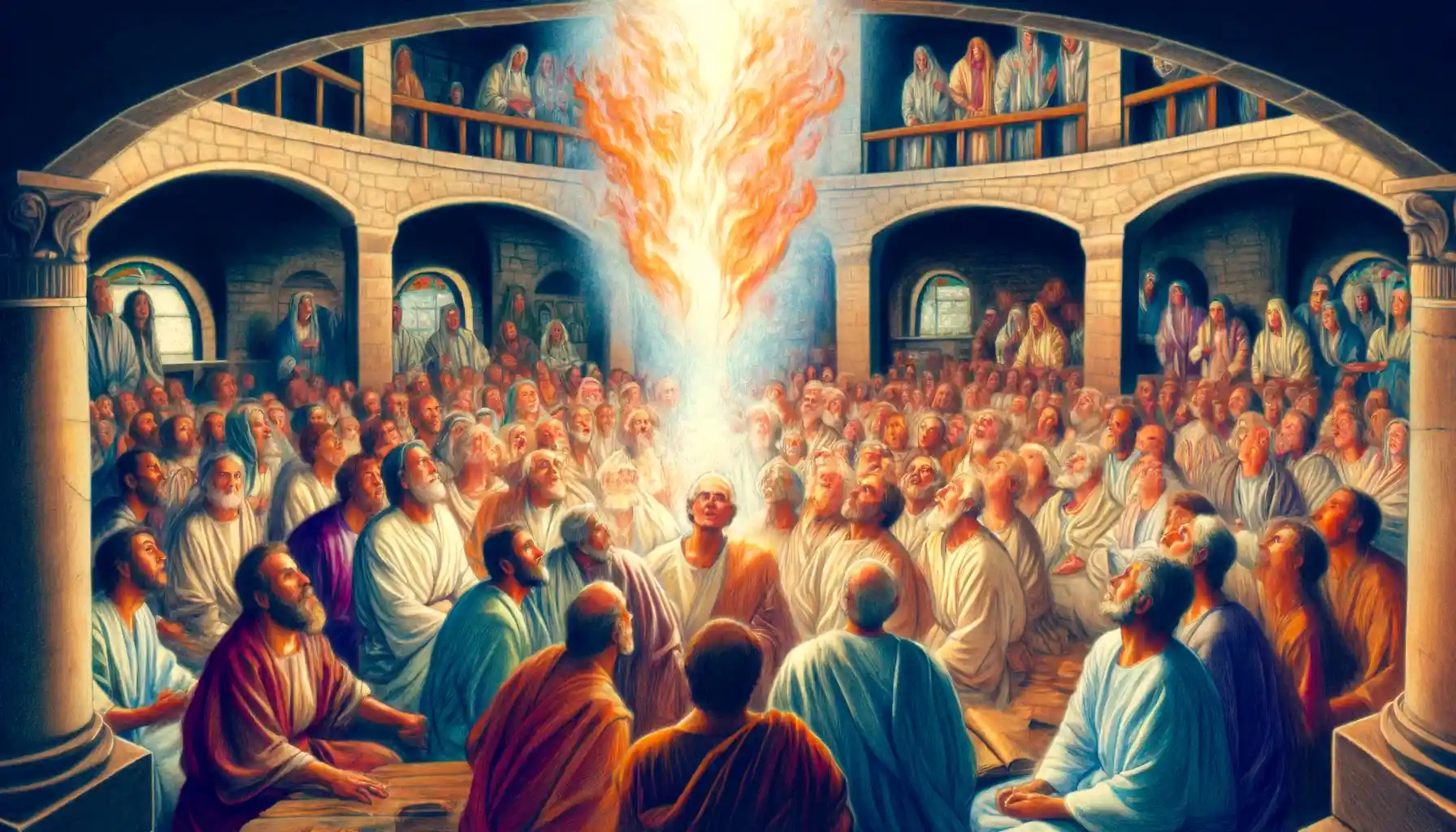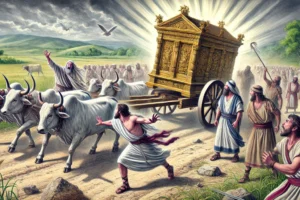
Pentecost
Pentecost is a significant event in Christian theology, marking the descent of the Holy Spirit upon the apostles and other followers of Jesus Christ as described in Acts 2:1-4. This event took place on the Jewish festival of Shavuot, fifty days after the Passover and the resurrection of Jesus. It is often considered the birth of the Christian church.
Quick Facts:
- Timing and Festival: Pentecost occurred on the Jewish festival of Shavuot, which is celebrated fifty days after Passover.
- Manifestations of the Spirit: The Holy Spirit descended in the form of “tongues of fire” and filled all those present in the upper room.
- Speaking in Tongues: Those filled with the Holy Spirit began to speak in other languages as the Spirit enabled them.
- Location: The event occurred in Jerusalem, where the disciples were gathered in one place.
Contextual Background: Pentecost in Acts 2:1-4 follows the ascension of Jesus Christ into heaven, which is described at the end of Luke’s Gospel and the beginning of Acts. The disciples are instructed to wait in Jerusalem for the “promise of the Father,” which Jesus had spoken of—a reference to the Holy Spirit (Acts 1:4-5). This event not only fulfills Jesus’ promise but also fulfills Old Testament prophecies such as Joel 2:28-32, which promised the outpouring of God’s Spirit in the last days.
Theological Significance:
- Birth of the Church: Pentecost is considered the birth of the Christian church. With the Holy Spirit’s descent, the apostles are empowered to begin their mission of spreading the Christian faith, transforming from a group of followers into a mission-driven church. This event symbolizes a new covenant, one not just for the Jews but for all of humanity.
- Empowerment by the Holy Spirit: The coming of the Holy Spirit fulfills Christ’s promise and demonstrates that the believers are not alone. The Holy Spirit provides them with the power to perform miracles, preach with boldness, and endure persecution. This empowerment signifies God’s presence among His people and His direct involvement in the Christian mission.
- Unity and Diversity: The Spirit-enabled speaking in diverse tongues represents the universal nature of the gospel. It underscores the fact that the message of Jesus Christ is for all people, regardless of their ethnic or geographical backgrounds. The miraculous speaking in different languages also signifies the reversal of the division caused at Babel (Genesis 11:1-9), promoting a divine unity in diversity.
- Fulfillment of Prophecy: The event links to the prophecy of Joel, which speaks of a time when God would pour out His Spirit on all flesh. Peter, one of the apostles, explicitly makes this connection in his sermon following the Pentecost events (Acts 2:16-21). This connection highlights the continuity between the Hebrew Scriptures and the New Testament Church.
Historical Impact: Following the events of Pentecost, the apostles began to preach the gospel with renewed zeal and courage, leading to thousands of conversions and rapid growth of the early church. This marked a shift from a predominantly Jewish context to a broader mission encompassing Gentiles, which significantly shaped the development of early Christian theology and practice.
Conclusion: The Pentecost event in Acts 2:1-4 is a pivotal moment in Christian history, symbolizing the transition from the ministry of Jesus to that of the Church, characterized by the Spirit’s empowerment, fulfillment of scriptural prophecy, and the universal offer of the gospel. It serves as a foundational story for understanding the role of the Holy Spirit in Christian life and the global mission of the church.



